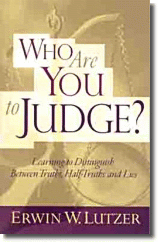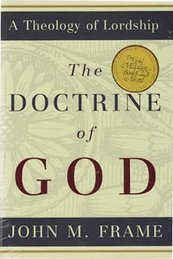In The Inspiration Of Scripture, Loraine Boettner wrote:
-- The inspiration of the bible is both "plenary inspiration" and "verbal inspiration".
-- By "plenary inspiration" we mean that a full and sufficient influence of the Holy Spirit extended to all parts of Scripture, rendering it an authoritative revelation from God, so that while the revelations come to us through the minds and wills of men they are nevertheless in the strictest sense the word of God.
-- By "verbal inspiration" we mean that the Divine influence which surrounded the sacred writers extended not only to the general thoughts, but also to the very words they employed, so that the thoughts which God intended to reveal to us have been conveyed with infallible accuracy -- that the writers were the organs of God in such a sense that what they said God said.
-- Millions of Christians today are like men whose feet are on quicksand and whose heads are in a fog. They do not know what they believe concerning the inspiration and authority of the Bible.
Indeed, the bible is important as it is the Word of God.
As John Calvin said in Institutes of the Christian Religion (Henry Beveridge, Esq Translation), Book 1, Chapter 6, Section 2:
I repeat that, in addition to the proper doctrine of faith and repentance in which Christ is set forth as a Mediator, the Scriptures employ certain marks and tokens to distinguish the only wise and true God, considered as the Creator and Governor of the world, and thereby guard against his being confounded with the herd of false deities. Therefore, while it becomes man seriously to employ his eyes in considering the works of God, since a place has been assigned him in this most glorious theatre that he may be a spectator of them, his special duty is to give ear to the Word, that he may the better profit. Hence it is not strange that those who are born in darkness become more and more hardened in their stupidity; because the vast majority instead of confining themselves within due bounds by listening with docility to the Word, exult in their own vanity. If true religion is to beam upon us, our principle must be, that it is necessary to begin with heavenly teaching, and that it is impossible for any man to obtain even the minutest portion of right and sound doctrine without being a disciple of Scripture. Hence, the first step in true knowledge is taken, when we reverently embrace the testimony which God has been pleased therein to give of himself. For not only does faith, full and perfect faith, but all correct knowledge of God, originate in obedience. And surely in this respect God has with singular
For us, where do go to know God better? Is it our own/ other experience(s)? Is it our pastor, our Sunday school teacher, cell group leader, parents? Or maybe it is our faculty of reason, the various theories of science? Going to these sources isn't wrong, but as Albert C Outler, (Professor of Theology, Perkins School of Theology, Southern Methodist University) noted in the preface to St. Bernard of Clairvaux' s On Loving God,“It was in Scripture that, first and last, Augustine found the focus of his religious authority.”Shouldn't we also be doing this? The scripture should havethe final say in all matters pertaining to our faith.
Wednesday, January 11, 2006
John Calvin's view on Scripture
Subscribe to:
Post Comments (Atom)



No comments:
Post a Comment